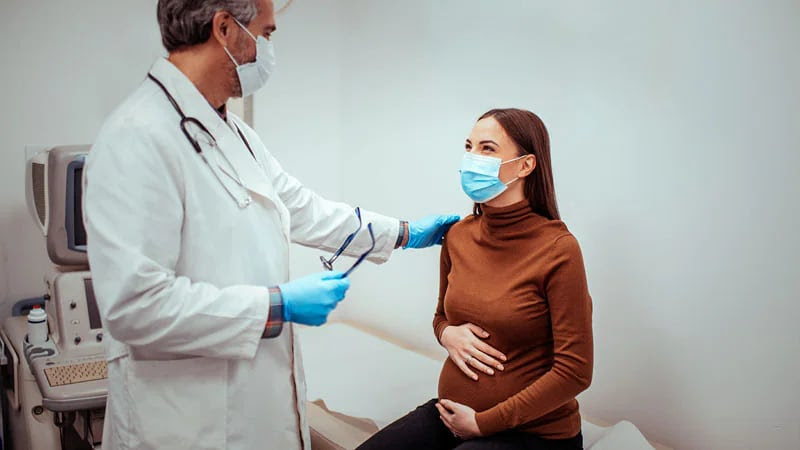By Carolyn Crist
Pregnant women who developed COVID-19 last year were 20 times more likely to die than those who did not contract the virus, a study finds. published in JAMA Pediatrics .
Among mothers who tested positive, about 11.5% of their newborns also contracted the virus and were more likely to be born prematurely.
“The main conclusion of the research is that pregnant women are not more likely to develop COVID-19, but if they do get infected, they are more likely to have more severe forms of the disease and require intensive care, develop preeclampsia, or have a premature birth,” said Dr. Michael Gravett, one of the study’s senior authors and a professor of obstetrics and gynecology at the University of Washington School of Medicine in Washington, USA, in a statement. [ 2 ]
A total of 2,130 pregnant women worldwide were studied, involving more than 100 researchers from 43 maternity hospitals in 18 countries between April and August 2020. During the study, each woman infected with COVID-19 was compared with two uninfected pregnant women who gave birth during the same time period in the same hospital.
They found that women who developed COVID-19 had a higher risk of death, preterm birth, preeclampsia, intubation, and intensive care unit admission. Those with obesity, hypertension, or diabetes faced the highest risks of severe illness. Those with mild or asymptomatic COVID-19 did not have an increased risk of intensive care unit care, preterm birth, or preeclampsia, but they still had a higher risk of death.
Infants who developed COVID-19 generally had mild infections but may have been born prematurely. Breastfeeding did not appear to be linked to transmission of the virus, but cesarean delivery was associated with an increased risk of transmission to newborns.
Similar research results this year have led public health officials to recommend COVID-19 vaccines for pregnant women to protect themselves and their infants, Dr. Gravett said in the statement.
"I strongly recommend that all pregnant women receive the COVID-19 vaccine," he concluded.

